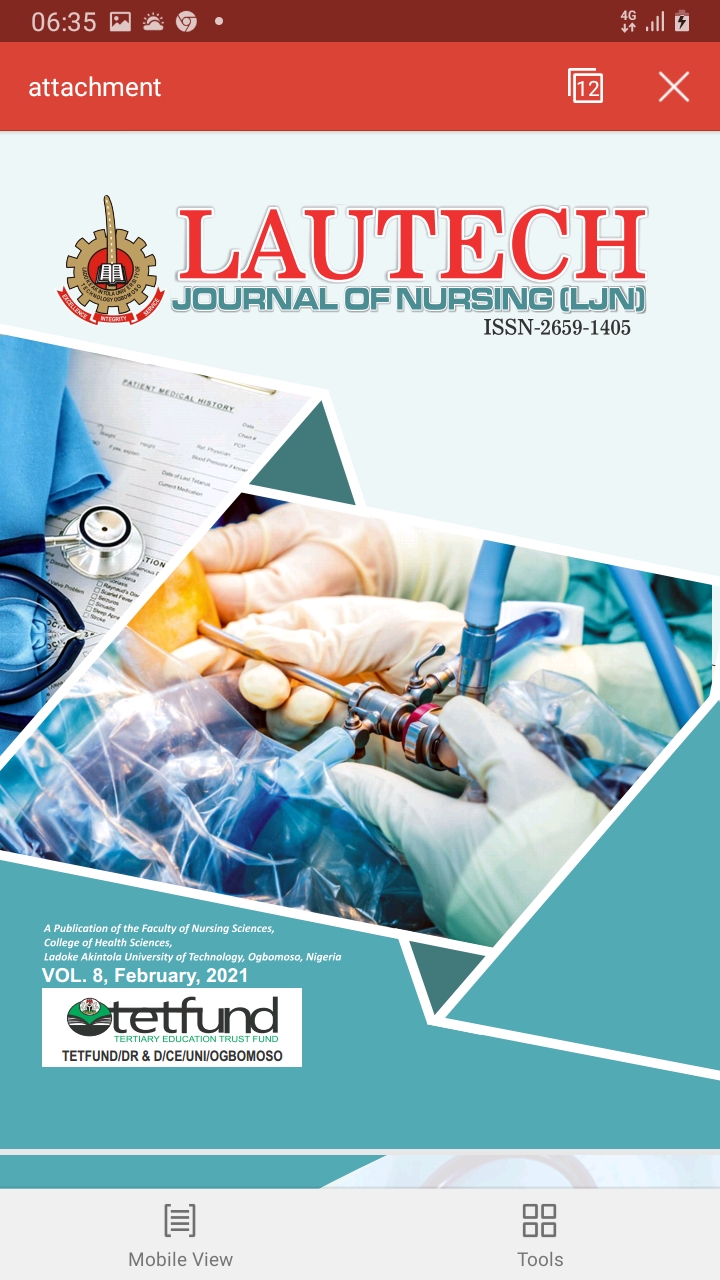Obesity has become an emerging epidemic of public health concern and contributes to 2.8 million deaths worldwide. Unhealthy eating habits and sedentary behaviours, particularly among the youths are key risk factors for obesity. There is limited data on obesity risk behaviours among young adults in private universities in Nigeria. This study assesses obesity
risk behaviours among undergraduate students in a private university in South-West, Nigeria. A cross-sectional survey design was used for this study. Simple random sampling technique was used to select 255 undergraduates in a private university in South-West, Nigeria. Data was collected using self-reported questionnaire adapted from previous study.
Descriptive analysis was done using frequency and percentage while inferential statistics was done using Chi-Square. The demographic characteristics shows that majority of the respondents were females (78.4%), were between of 19-21 years (71%) with the mean age of 20.09 years. Most of the respondents were Christians (89.8%). Majority (86.3%)
received a monthly allowance that was between 31, 000 naira and 60, 000 naira. Result of this study, showed that the level of obesity risk eating behaviour of respondents very low although the rate of consumption of Shawarma (76.5) and carbonated drinks (57.3%) are high, 5-7 times a week. This indicates that obesity risk behaviour is high among students of the private university under study. Furthermore, findings reveal that sedentary risk behaviours among respondents is very high and the most common behaviours exhibited by respondents are using the internet and computer/Phone games. Lastly, a significant association is observed between consumption of Sharwama and the monthly allowance of
the students ( ꭓ2 = 25.31, p < 0.05) This suggests the need for development of comprehensive intervention targeting behavioural skills, health education and counselling to promote healthy eating and increased physical activities.
- Cecilia | B. | BELLO | bukolabello@abuad.edu.ng | +2347044444333, Deborah | T. | ESAN | esandt@abuad.edu.ng | +2348062384864, Risikat | I. | FADARE | fadareri@abuad.edu.ng | +2348034679248, Adaeze | C. | IKPEAZU | adaezeikpezu@yahoo.com | +2348100082026
- Sedentary lifestyle; Unhealthy eating habits; Obesity; Public enlightenment on nutrition
- Cecilia B. BELLO Vol 8


